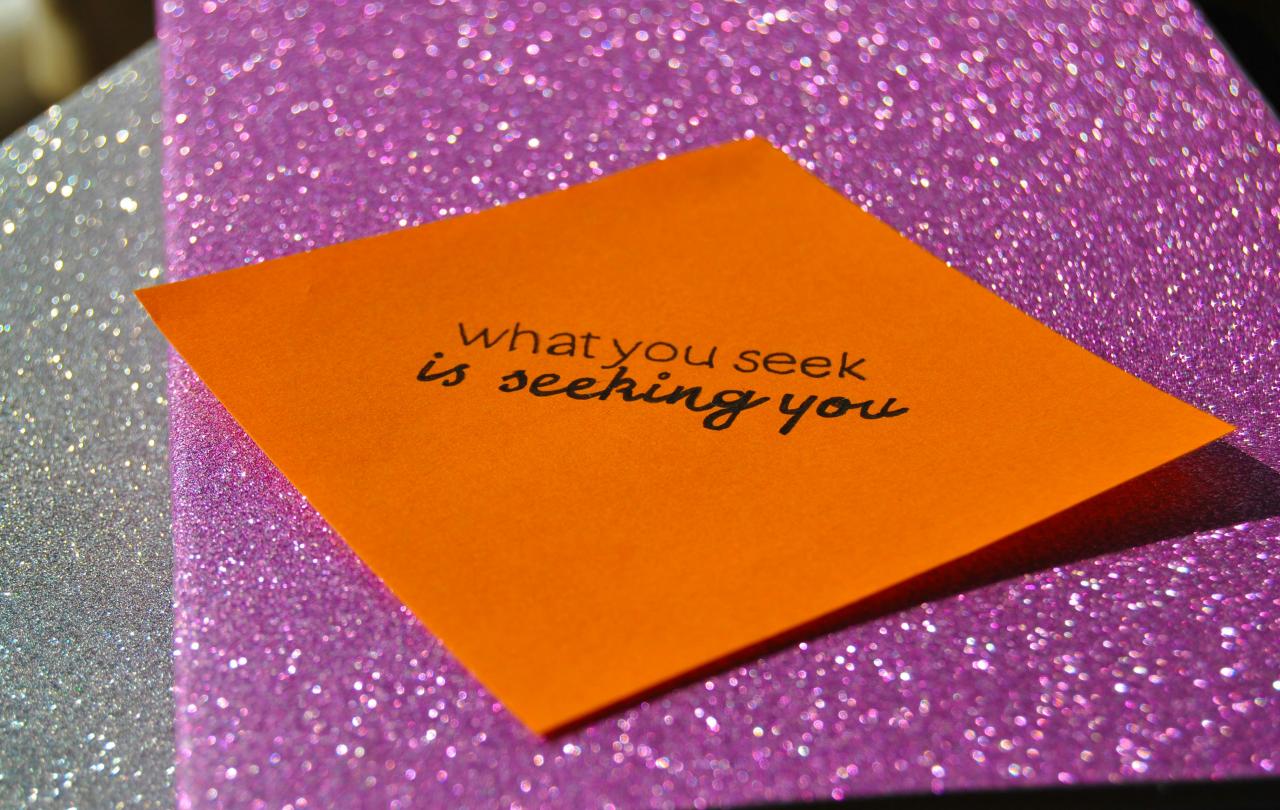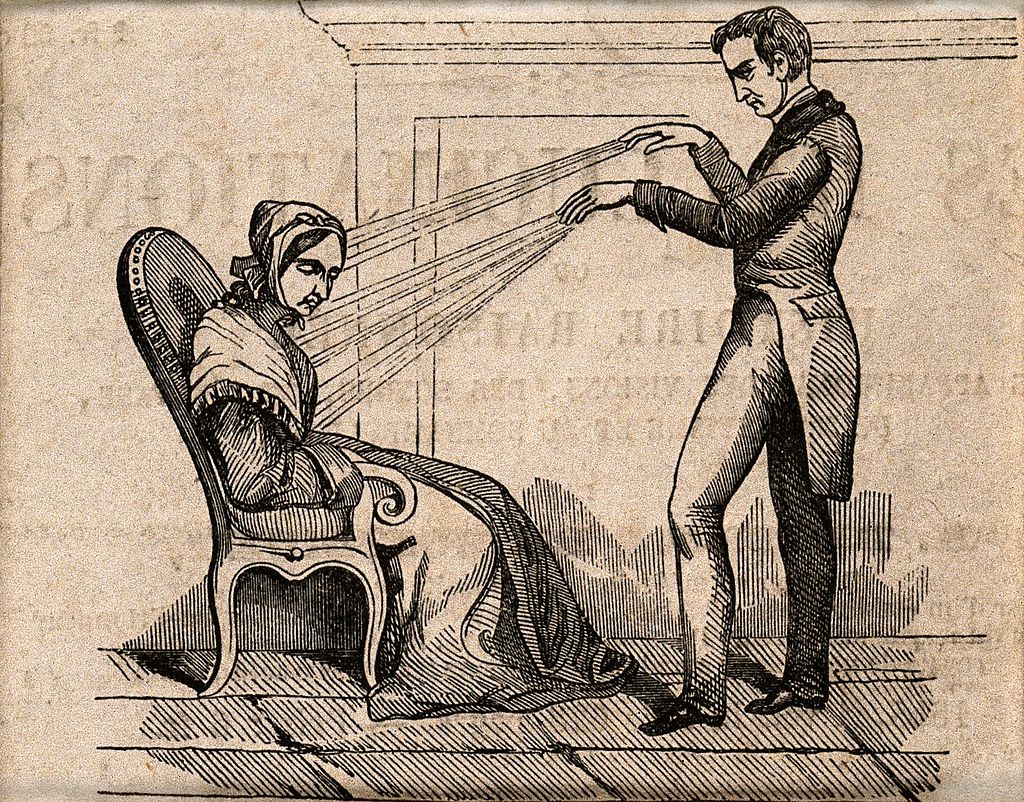
I’m eleven years old and I’ve been given a New Testament in our school assembly. This is the first time I’ve owned a copy of the Bible. So far, I’ve only heard it read to me in school or the few times I’ve gone to church with my family. I flick through it that evening, taken by the table at the front that directs you to different verses that speak to how you might be feeling. I find myself reading Revelation. The imagery frightens me. The tone, the threat, the fear, and the condemnation… would this be me if I didn’t believe in the right way? If I didn’t believe enough? I’m terrified of this book, these words, terrified of God, even. Mostly, I’m terrified by my own doubt and uncertainty about all things religious, despite wanting to believe. What if God isn’t real? What if God is and I just don’t believe enough? God will know I’m not sure. I tell myself not to think about it. If I’m to avoid thinking about it, I can never read the Bible again. I accept this as a rule.
-
I’m twelve years old and I’m standing in the National Museum of Scotland in Edinburgh, listening to one of Bach’s minor key concertos playing from the Millennium Clock. To me, it looks like it depicts some sort of hellscape straight from the book of Revelation. Death, suffering, and evil are everywhere in this model with its eerie red glow at the bottom. It brings up all the thoughts I’ve been trying to avoid – “you don’t believe enough” and “this is what hell looks like.” I tell myself to forget about it. If I’m to forget about it, I need to make sure that I never talk about it and don’t tell anyone how afraid of it I am. Talking about it makes it real, I think. I accept this, too, as a rule.
-
I’m thirteen years old and I’m sitting in a church trying to concentrate on the service. I can’t because I keep having the thought that I don’t believe enough. I’m worrying about what the reading might be – I’m still too scared to read the Bible and I can’t prevent myself from hearing it in this space. I’m afraid of thinking that I don’t believe enough, and that God will know because this is God’s church after all. I tell myself that I do not belong in this place if I cannot control my thoughts. If I can’t do that, I can never go to church again. This too, becomes a rule.
-
I’m fourteen years old and I’ve started praying every evening. I’m not sure what prompted this, but I also know that I must do it correctly. If I pray and forget to conclude with “amen”, then it seems obvious that God will continue to listen to my thoughts as if I’ve forgotten to hang up the phone. I try to keep my thoughts corralled and pure when I pray. If I don’t end my prayer, God will hear all my worst thoughts – the ones I am ashamed of, the ones that scare me, the ones that fill me with doubt. I tell myself that I can no longer run that risk. If I’m to prevent this, I shouldn’t pray. Another rule.
I was scared to say these things aloud – to voice my fears or doubts in case they somehow became worse if I acknowledged them.
I’m now in my late twenties, and I have been diagnosed with Obsessive-Compulsive Disorder (OCD) and I’m slowly unlearning the rules I’ve created for myself over the years. Each of them, in their own way, was designed to keep me safe from harm, safe from thinking about something that frightened me, or acknowledging difficult emotions like doubt and uncertainty.
It has been a long road to reach that diagnosis. OCD is regularly misunderstood and presented as punchline of jokes – “I’m so OCD!” is one that I’ve heard far too many times when someone simply means that they’re organised. The problem with these jokes is that it disguises the reality and makes it that bit harder for people to recognise what it is they’re really dealing with. OCD-UK, a charity to whom I owe a great deal, describe OCD as follows: “Obsessions are very distressing and result in a person carrying out repetitive behaviours or rituals in order to prevent a perceived harm and/or worry that preceding obsessions have focused their attention on.”
Obsessions could cover virtually any topic, and everyone will experience compulsions in slightly different ways. I didn’t recognise that I was living with OCD because almost all of my compulsions were mental rituals or avoidance behaviour. I would try and avoid thinking about things, check whether thoughts upset me, avoid reading the Bible… Layers and layers of compulsive behaviour in response to frightening intrusive thoughts that became associated with faith. I was scared to say these things aloud – to voice my fears or doubts in case they somehow became worse if I acknowledged them. I now know to call this “magical thinking” but I still find it difficult at times to accept that I cannot cause something to happen simply by saying it.
It can be particularly difficult for people with OCD to cope with uncertainty. I can see why anxiety and doubt about the existence of God has been hard for me to tolerate. I also know that I can never achieve absolute certainty and part of learning to live with OCD is learning to accept that and make choices despite it. Last year I attended the International OCD Foundation (IOCDF) Faith and OCD conference and was overwhelmed by the sheer number of people there. So many people with the same worries and doubts as me, and many more who had found that OCD impacted them in different ways.
But it was hard for a doctor to diagnose me until I could find the words to articulate what I was experiencing. It wasn’t until I started reading books about other people’s experiences with OCD that I started to recognise my own thought patterns, my own fears and doubts in other people’s words. Author and video creator John Green shares a very powerful video titled “What OCD is like (for me)” where he shares what his experience of having OCD and says:
“I can say what it is like more than what it is.”
This gives me a little more courage to tell people what living with OCD can be like and represent some of the diverse experiences of the condition. For someone who was too frightened to open a Bible, I think it’s a little ironic that I am now a theologian. My doctoral research project is focusing on faith and OCD, and in particular, how it might affect someone’s relationship with God. I hope to make use of some of my own experience along the way – examining my fear of not being sure enough, my worries that my intrusive thoughts would somehow offend God… I hope that by sharing this, I can raise a little more awareness of an experience that so many of us try to keep secret or just aren’t ready to speak about.
Through advocacy and research, I’d like to share a little of, as John Green says, what OCD looks like (for me). I’d like to add my voice – now that I’ve found it – to the discussion in the hopes that someone might read this and recognise what they’re going through. And if that’s you? You’re not alone. There is help and there is hope.






